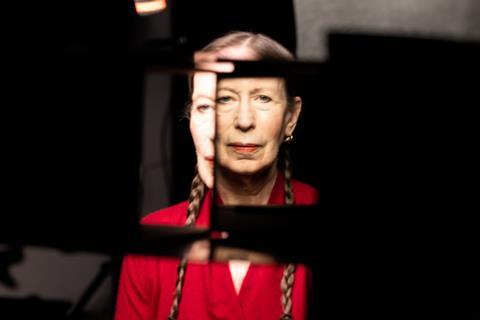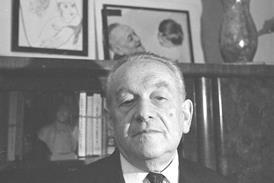Documentary plays Thessaloniki following its Berlin premiere

Dir: Billy Shebar, David C Roberts. US/Germany/France. 2025. 94mins
“What do you even call this?” asks one academic in this documentary, referring to the remarkable musical and performance work of Meredith Monk which, 60 years after she began her career, continues to defy easy classification. Rather than answer that question directly, directors Billy Shebar and David C Roberts present the rich tapestry of her music, which is frequently based around soaring vocalisations that swoop and loop across her three-octave range, sometimes sounding primal, sometimes futuristic and everything in between.
An accessible introduction for newcomers to Monk
The directors watch Monk work, alone and in collaboration. They also garner contributions from those who admire or have worked with her, including Talking Heads star David Byrne, Icelandic singer Bjork and fellow composer Philip Glass, who describes her as “uniquely gifted”. Their biggest asset is, however, Monk herself, who allows the filmmakers to shoot her in the loft in New York’s Tribeca where she lives and works, and opens her journals to them. Although considerably less avant garde than the composer, the film takes a kaleidoscopic rather than chronological approach while letting her voice literally sing out over much of it.
Monk In Pieces is continuing its festival run at Thessaloniki Documentary Film Festival after its world premiere in Berlin. While there are points at which you wish the directors would dig a little deeper in their questioning of Monk, or linger a little longer, fans will welcome this up-close look at her. Their approach also makes it an accessible introduction for newcomers to Monk’s oeuvre and should help it attract attention beyond the festival circuit.
As promised, the film arrives in pieces that are split by intertitle cards, some taking their label from her work, including ‘Juice’ and ’Gotham Lullaby’, others playfully referencing themes, such as ’Where’s the score?’. That question precedes a section concerning the increasing consternation of organisers as she wrote her 1991 opera Atlas; documents read out on screen reveal that her need for perfection lead them to tear their hair out.
As well as presenting a collage of the artist through her career – at one point showing in split-screen how she has repeated certain statements about her work down the years – the documentary also touches on her personal relationships. Key among these is the difficult one she had with her mother Audrey Marsh, a jingle singer whose work frequently took her away from home. Monk also talks about her relationship with her Dutch life partner, choreographer Mieke van Hoek, whose untimely death in 2002 at the age of 56 led Monk to write the melancholic ’Impermanence’. Occasionally these pieces are frustratingly fragmented, but the approach does help Roberts and Shebar cover a lot of ground.
Given that the directors previously created Trump Bites, a satirical web series animated by Bill Plympton, it’s perhaps no surprise that they also incorporate animation here (this time created by Paul Barritt), in sequences that emphasise the sexism Monk encountered during her early years. Animation is also used to illustrate segments in which Monk talks about her dreams, featuring 2D characters including her beloved tortoise Neutron. The style recalls decoupage, which is appropriate as it recalls the layering that is present in Monk’s compositions.
The 2D rendering also feels like a nod to the strabismus which Monk was born with, an eye condition that prevents her seeing in 3D. In a bid to improve her daughter’s co-ordination, Monk’s mother enrolled her in Dalcroze Eurhythmics, which teaches musical expression through movement. This connection of physical expression with vocalisations is a large part of what makes Monk’s work so special.
Speaking about grief, the now 82-year-old Monk says, “You never have closure… and you shouldn’t”. It’s a thought that could also sum up her work, which is as much about continuances as endings. It’s heartening to see her passing the baton – or at least the cadences – of her music to next generation performer Joanna Lynn-Jacobs, whose voice is different but equally as unique.
Production companies: 110th Street Films
International sales: Cinephil, info@cinephil.com
Producers: Billy Shebar, Susan Margolin, David C Roberts
Cinematography: Jeff Hutchens, Ben Stechschulte
Editing: Sabine Krayenbuhl
Music: Meredith Monk
























